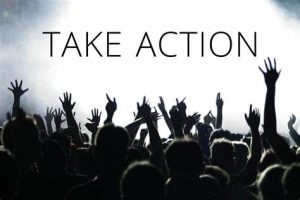
Umm Muhammed Umar
The Action for Accountability project is co-founded by the European Union and implemented by the Ahmed Kathrada Foundation, Accountability Lab South Africa and the Public Service Accountability Monitor. Radio Islam discussed the project with Funeka Manzi, a civic activist officer at Accountability Lab South Africa and Zarina Motala, community facilitator for Lenasia Ward 9.
Manzi said that the project works to enhance public service accountability and good governance. She said that it’s been implemented in Lenasia, Mondeor and Finetown, in Johannesburg, but also in Makhanda, in the Eastern Cape. She said, “What we want is community led action and advocacy and also using certain citizen based monitoring or social accountability tools, or what is usually termed social audits.” Manzi added, “So, we work to train citizens on these management tools, and how to use this information to hold government accountable to its citizens.”
Motala added to the conversation, saying that an open session had been held for the Lenasia area, and input by those who had attend was useful. She further said that she would be engaging with community activists and asking them to join the civics team. She said, “we are working with counsellors, with the ward committee – we’re not here to replace anybody or any structure in the city of Johannesburg……the city has embraced the project and they’re quite excited about it, through the office of the speaker and the mayor.” She added, the counsellors are fully briefed about what the project is all about, so we are really are going to be working with one another not against anybody.” Motala said that they would be engaging with the community regarding issues such as the taxi rank, listening to the community, allowing it a voice, and taking its recommendations to the City. Motala said the effort was aimed at bridging the communication gap between the community, their councillors and council, and to hold public representatives at all spheres of government accountable. She said that she hoped the three-year project would enhance communication and also assist public representatives in how they carried out their duties and responsibilities. and what is the role that communities just play apart from just logging a code and leaving it there and having angers having frustration, but it’s how we as a team are going to work together.
Manzi said the areas chosen represented different demographics. She said, “we wanted to also not limit it to just the city of Johannesburg. We wanted to expand it to areas such as the Eastern Cape to find out how they use citizen-based monitoring tools, etc.” regarding the civic action teams model itself she explained, “So, it is citizen feedback and dialogue community voice platform. There’s training involved in terms of how to use these particular monitoring tools, and we want to ensure that the collection of information is not for the sake of just collecting the information or to be used for reporting to donors, but that it is meaningful to citizens themselves.” Manzi said that if Lenasia was taken as an example, there was a lot of interest in budgeting, so they want the community itself to determined what the main key focus area was for this three-year project in particular.
Motala, meanwhile offered her phone number to all who are interested in getting involved: 0718513627. She said they call on all people to participate, the youth in particular, but also people across the board – “people with disabilities, males, females, people in different spaces.” She urged people not to be hesitant, as they would be given training.
Manzi explained that the EU was interested in the project because it was interested issues of accountability – state capture, corruption, etc. she said, “they have provided funding specifically on issues around accountability and empowering citizens on this particular subject.” The EU is the main funder of the project. Manzi said, “I wanted to just highlight that it has been implemented in other countries as well and has been successful in other countries, for instance, it was first established in Nepal, for communities who were affected by the earthquake in 2015, and the success of that is that this was what fed into their $4.4 billion relief effort.” She added, “it will also provide job opportunities for communities in areas involved.”







0 Comments